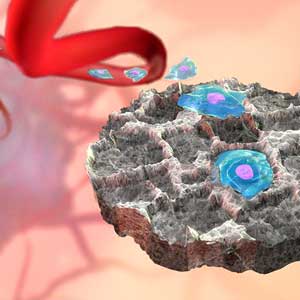Treatment
-
From the Editor-in-Chief
Measuring a Cancer Drug’s EffectivenessSurrogate endpoints can speed up drug approvals, but are they valid measures of effectiveness?
by William G. Nelson, MD, PhD
-
Forward Look
Cancer Treatments and Antioxidant Supplements Can Be a Bad MixChristine Ambrosone on what her research shows.
by Sue Rochman
-
Forward Look
Here Come the BiosimilarsAs patents expire on biologic drugs, cancer patients get new options.
by Stephen Ornes
-
Forward Look
More Treatments Approved for Metastatic Breast CancerTargeted therapy approvals increase options and hope for some patients.
by Cameron Walker
-
Forward Look
Cancer Death Rate Decline Makes HeadlinesExperts say it's necessary to look behind the statistics.
by Delia O’Hara
-
Keeping CLL in Check
With recent advances in targeted treatments, people diagnosed with chronic lymphocytic leukemia have more options to manage the disease.
by Kendall K. Morgan
-
Robotic Surgery and Cancer
Using robotic assistants for cancer surgery has become commonplace. Whether cancer patients benefit when a surgeon uses a robot remains unclear.
by Sue Rochman
-
Treating Cancer Patients With COVID-19: A New York City Experience
An analysis of cancer patients who were infected with the coronavirus and treated at Memorial Sloan Kettering Cancer Center in New York City suggests certain risk factors may predict more severe COVID-19.
by Anna Azvolinsky
-
What is a Super Responder?
Researchers are investigating why certain patients have an exceptional response to a particular drug.
by Bradley Jones














